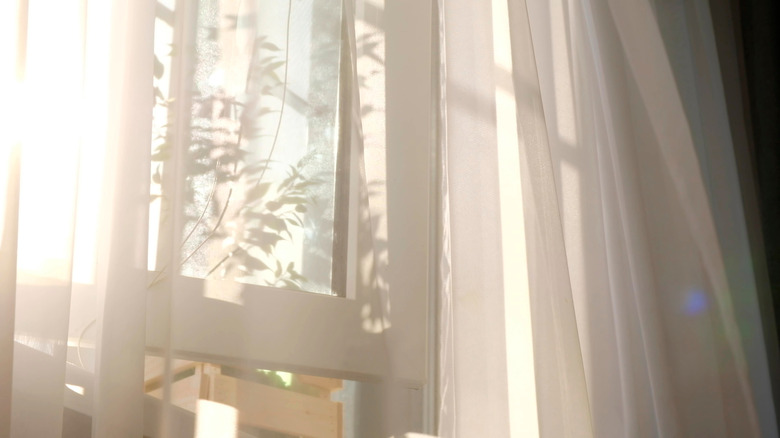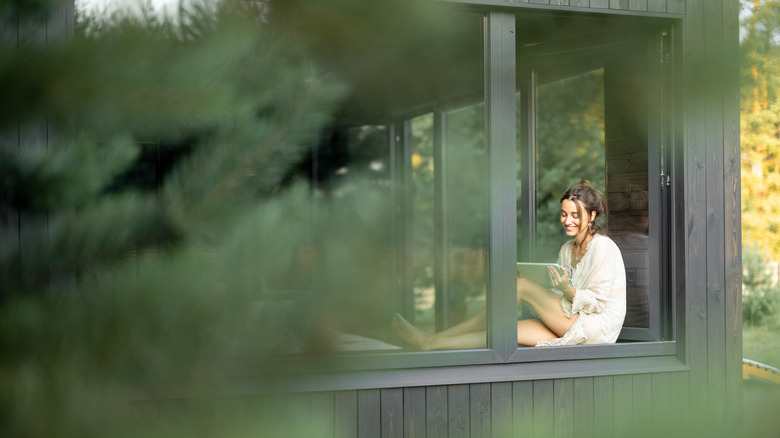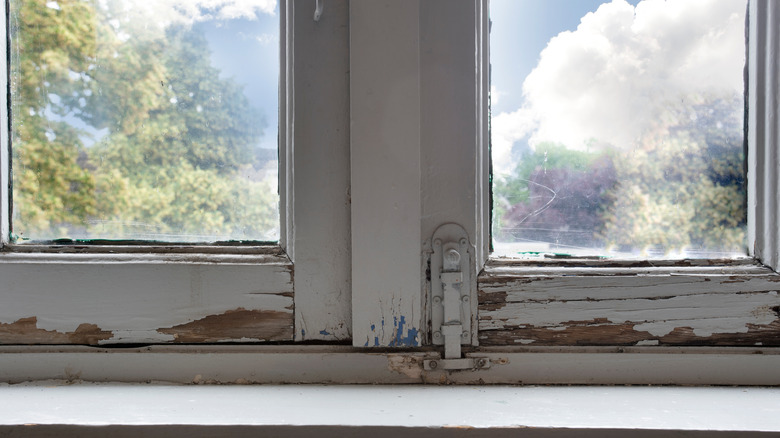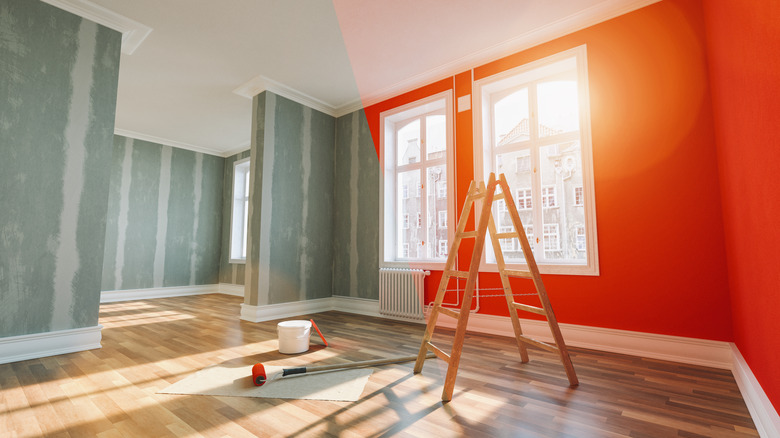What Could Be Wrong If Your Windows Won't Open
Window trouble is a common issue for homeowners. A number of different problems can result when a window gets stuck, whether in an open or closed position. Acme Glass reports that rotting or swollen wood, damage to the frames, a build-up of debris in the moving parts, or in some extreme cases shifting foundations are some of the most common reasons that homeowners have issues with their windows not opening.
Bob Vila suggests another issue that may be affecting the smooth operation of your windows. If you've recently had your windows painted then the sticking sensation you're experiencing could be a result of wet paint entering into the hinges or closing mechanism. Alternatively, paint in the tight recesses of the frame can form a bond that acts similar to glue. Whatever the reason, sticking windows can cause a major headache for homeowners. Thankfully, fixing the problem is often easier than you might think.
Remove any debris or rust
One of the simpler solutions for a window that won't open is to clean out any debris or gunk that has built up in the tracks. The hardware and track of the window can become stiff with leaves, dirt, rust, and other debris buildups. Acme Glass explains that these moving parts play an integral role in the smooth operation of a window, allowing it to slide from one position to another without hindrance. The accumulation of foreign elements can reduce the functionality of the window or cause it to stop moving altogether.
However, fixing this problem is quite simple. It's a good idea to start by inspecting the sliding tracks that allow the window to move up and down (or in and out). Any amount of dirt or grime found in these areas can significantly restrict the window's range of movement, leading to a stuck window if allowed to build up for long enough. In addition to the tracks, any other metal hardware like the hinges and locking mechanism can be adversely affected by humidity or direct water contact, which will eventually cause the components to rust, notes Family Handyman. Keeping these moving parts well lubricated with spray grease such as WD40 will prevent oxidation and keep them from binding.
Check for warped or rotting wood
Remove and Replace offers another explanation for a window that is stuck in either an open or closed position. If the window is made from wood, you may be dealing with a warped frame. This usually occurs due to temperature changes or exposure to humidity, direct sunlight, and rainwater. Warping is a common occurrence among older windows. Clera Windows estimates that good-quality wooden windows will last an average of 15 to 20 years. If your windows are approaching this age range, the trouble could simply be a product of aging material that no longer fits snugly into its frame.
A worst-case scenario is a rotting frame rather than a warped one. The wooden material can begin to fail as a result of rot, decay, or fungus. If the paint on your windows has started to flake and peel off or the surface has a spongy feel, then this is an early sign that you may be dealing with a rotten window frame, and remedial steps should be taken as quickly as possible (via Home Improvement Scout).
A sign of something more serious?
Acme Glass reports that in some cases, shifting foundations could be the cause of sticking windows. Shifting foundations is of significant concern to any homeowner and will require immediate remedial steps. In the event of a minor shift, little action may be required; simply lifting the window frame may be all that's needed to set it straight again. Matthews Wall Anchor & Waterproofing cites extensive tree growth, poorly compacted soil, or a rapid change in soil moisture content as some of the primary causes for movement in the foundations.
If you are confident that you are dealing with a foundation-related problem, it's a good idea to have both your windows and foundations fully inspected. Allied Foundation states that a certain amount of settling in is to be expected on new builds, however, in older properties, foundation trouble can quickly run out of control. Therefore, seeking professional advice is likely your best bet if you are at all worried about your property.



